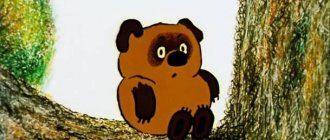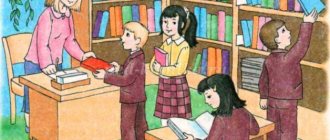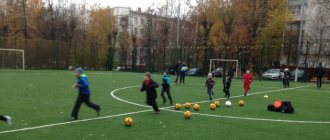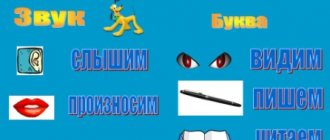"Migratory Bird Experts"
Goals:
summarize children's knowledge about migratory birds of our Motherland in a playful way.
develop the ability to play a role determined by the conditions of the competition.
to cultivate love and respect for nature, a sense of beauty.
Roles
leading, spring, nature are performed by students. The words of their assistants are spoken by children in grades 1-4.
Cabinet
decorated with children's drawings on this topic.
Presenter 1.
Today, at your request, an Owl should fly to us, but when we came here, we found a note on the board.
“I can’t be there today, I’m very sorry, but so that you don’t waste your time, hold the competition without me. The Council of the Wise will help determine the strongest.”
Advice
the wisest: representatives of parents and teachers from each class.
Students in grades 1-4 come out and read poems.
Attention! Attention! Today at five o'clock the station will be open for groves and forests. Today in our studio... Attention! Attention! Different birds will flock to the radio meeting! Firstly, on the question: “When, at what time is it more convenient and profitable to use dew?” The second question is long overdue: “What is called an echo? And if it is in the forest, then where is it hiding? On the third question, Rook, who was appointed to manage the repair of poultry cottages, reports. Then the debate will begin: And whistling, and creaking, and singing, Rumbling and squealing, And chirping, and chirping. Performances of Starlings, Goldfinches, Tits and all other famous birds will begin. Attention! attention! Today at five o'clock the station will be open for groves and forests.
Presenter 2.
Wow! We ended up at a bird meeting. It is obviously about welcoming spring. Look how many birds have arrived. And spring has come to visit us, it has replaced winter. In Rus' they welcomed spring by calling. Let's say the chant in unison:
Bug - hook - spider, Come to us, little Easter cake, Vitu - Vitu - Vitu - bark, Brought spring to our region.
Spring.
And here I am, Spring is red! Who needed me here?
Guys.
Us! Us!
Spring.
I am the red Spring, I awaken the earth from sleep, I fill the buds with juice, I grow flowers in the meadows. I drive ice away from the rivers and make the sunrise bright. Everywhere, in the field and in the forest, I bring joy to people. Hello, dear guys! Are you comfortable? Can everyone hear? Was there enough room for everyone? Dear guys, I didn’t come alone. I have good helpers - stoneflies.
Vesnyanka 1.
Spring of light - March: Winter is angry for a reason. Its time has passed. Spring is knocking on the window and driving you out of the yard.
Vesnyanka 2.
Spring of water - April: Winter is still busy And grumbles at spring, She laughs in her eyes And just makes more noise.
Vesnyanka 3.
Spring of green grass - May: Go away, gray winter. The beauties of spring, the golden chariot, rushes from the mountain heights.
Spring.
I'm opening our fun competition. Guys, what signs of spring do you know?
(Children pronounce signs about March).
Spring begins in March, so they say: March is the morning of spring. How in March winter does not get angry, but submits to spring. Blue clouds mean warmth or rain. A lot of sap flows from a birch tree - a sign of bad weather. The early arrival of cranes means early spring. Long icicles - for a long spring.
Presenter 1.
Guys, to make the game interesting we need to select players from each class.
Now our assistants will draw lots. To do this you need to take a token ( children take tokens
). You have the tokens in your hands, look at them carefully. Those who have a mark, please go to the middle of the hall.
Presenter 2.
You probably know that in the old days they baked cookies called larks. Housewives put a surprise in individual items - a penny. The one who received it, according to the legend, could be rich. You, those who have the mark, have the honor of demonstrating the dexterity, knowledge, artistry of your class.
Presenter 1.
Now each team will receive cards with questions.
One minute is allotted to prepare answers, after which the team gives an answer. For each correct answer you receive 1 point. Attention, rival teams! If the answering team gives the wrong answer, you can answer if you know the correct answer and bring extra points to your team ( Leaders hand out question cards).
Presenter 2.
While the teams are thinking, questions for the fans.
Questions:
What birds do little swans look like? (On ducklings)
Who wrote the fairy tale “The Ugly Duckling”? (H.H. Andersen)
What other Andersen fairy tales do you remember that have bird names in the titles? (“Nightingale”, “Wild Swans”)
Presenter 1.
So, a minute has passed. Please give answers (teams answer, if there are incorrect questions, then give other teams the opportunity to answer, preferably in turn).
Questions:
What bird can fly tail first? (Hummingbird)
Which bird flies the highest? (Eagle)
What is the smallest bird in our country? (Korolek)
What is the largest bird in the world? (Ostrich)
When is a sparrow's body temperature lower - in summer or winter? (Same)
What bird bears the name of a famous Russian writer? (Gogol)
- In which country do white cranes build their nests and raise their chicks? (In Russia)
- How do mother pelicans feed their chicks? (they regurgitate softened fish from the crop)
- How does a jay escape from enemies? (Submerges like a submarine)
- How many eggs do eagles lay? (Two)
- What bird hatches its chicks in the rain? (Swan)
- How does a gray heron hunt? (Stands motionless, neck drawn in and one leg tucked)
- Which bird has the longest tongue? (The woodpecker has up to 1.5 meters)
- Which birds have wings covered not with feathers, but with scales? (In penguins)
- Which bird has the longest tail? (Magpie)
- Where do tits build their nests? (In the hollows of trees)
- What benefits do tits bring? (Eat bugs and larvae)
- When are geese especially angry? (When the goslings appear)
- How long are a goose's wings? (Up to 1.5 meters)
- How do geese protect their babies from bad weather? (Hide under the wings
Presenter 2.
The team competition continues.
The next competition is for the best knowledge of proverbs. You are offered cards with the names of birds. Remember the proverbs that mention these birds. One minute to think. Maximum – 5 points.
- Sparrow (the word is not a sparrow - you won’t catch it if it flies out. You can’t fool an old sparrow on the chaff).
- Sandpiper (every sandpiper praises its swamp).
- Goose (the goose is not a friend to the pig).
- Tit (better a tit in the hands than a pie in the sky. A tit is not big, but a bird).
Presenter 1.
While the teams are thinking about questions for the fans.
- Name the favorite delicacy of storks. (Frogs)
- What bird's nest hangs just above the water at the end of a branch in the form of a soft bag? (Remez)
- What is the Red Book? (Book about endangered animals)
Thank you. A minute has passed, and now let's listen to the commands. Team responses.
Presenter 2.
In the spring, peasant children loved to play.
One game was called “Spring”. Listen to the terms of the game we are about to play. Each team will play for itself. Maximum – 5 points.
Children stand one after another on one side of the spring stream, clasp each other’s arms to the waist and sing:
The fontanel overflowed, the golden horn. Wow! The spring spilled, White, snowy, Wow! Through mosses, through swamps, Through rotten decks, Ooh!
Having sung a song, they jump sideways over the stream to the other side. At the same time, they interfere with each other, hold each other, trying to push them into the water. Whichever of the guys touches the water is eliminated from the game.
Presenter 1.
Now we will see how you can solve riddles
.
For each correctly guessed riddle - 2 points. In the summer he follows the plowman, and in the winter he leaves screaming. (Rook)
He is gray in appearance, but famous for his singing. (Nightingale)
Blind during the day, sighted at night, Catches mice, not the cat. (Owl)
The brothers stood on stilts, looking for food along the way. Whether walking or running, They can’t get off their stilts. (Cranes)
A little boy in a gray army jacket sneaks around the yards, collects crumbs, spends the night in the fields, steals hemp. (Sparrow)
Every year I fly to you - I want to spend the winter with you. I'm even redder in winter, My bright red tie. (Bullfinch)
Not a king, but wearing a crown, not a hussar, but wearing spurs, He doesn’t look at his watch, but knows the time. (Rooster)
There is an awl in front, a fork in the back, a blue cloth on top, a white towel on the bottom. (Martin)
Winged, loud-mouthed, red flippers. (Goose)
Blacksmiths are forging among the trees. (Woodpeckers)
Mother, I don’t know father, but I often call them, I won’t know the children - I’ll be strangers. (Cuckoo)
It sleeps during the day, flies at night, and scares passers-by. (Owl)
Well done. The Council of the Wise will now sum up the results and announce to us.
Presenter 2.
While the Council of the Wise sums up the results, a question for the fans. I will name a word, and you say a proverb that contains this word. "Bird". (Answer option: A bird is recognized in flight, and a person is recognized in work).
Monologue of nature
(
elementary school student reading
).
Nature. I am a great master. Eternal master of life. I can, Man, give you a gift for complicity - All this is in my power! - A mushroom in the forest, a chamomile in a meadow, the sky at the hour of sunrise and sunset, a willow tree over the river... And, finally, a sun-baked, reddish ear of bread! Like the crown of everything... Only my gift, my teaching. Do not take it as tribute: I am not a slave. Don’t forget: you yourself are my creation! And you and I have the same destiny! Yes, you have grown. You said goodbye to childhood. Wider - no matter the year - are your steps... But don’t engage in self-criticism! And even the blade of grass that I gave you as an inheritance, take care! Even a wolf - suddenly he’s the last... You will destroy (an animal is not a pencil) - You cannot create the latest machines with the help of the most complex calculations. You and I are rolling along the same road - not an hour apart, not a day... And you cannot be above me, Just as you cannot be outside of me.
Mistress of the Forest
(
an elementary school student reads a monologue).
We are the masters of nature, and she is the storehouse of the sun with all the treasures of life. Fish need water, birds need air, animals need forests, steppes, mountains, and humans need nature. And protecting it is our main goal. The earth is so small! let's take care of her!
There are many of us, guys! Wherever we live, we will plant trees, create gardens! Take care of this Earth, this water, Loving even a small epic, Take care of all the animals inside nature, Kill only the animals inside yourself!
Presenter 1.
Let's listen to the advice of the wisest.
Summing up, awarding the winners.
Competition “Connoisseurs of Migratory Birds”
Teacher: Zhukova I.V.
Quiz for children of the preparatory group “Birds of Migratory”
MADO "Kindergarten "Galaktika" Perm
Quiz for children of the preparatory group “Birds of Migratory”
Teachers: Rozanova Natalya Gennadievna
Ilyicheva Galina Ivanovna
2019
Quiz for children of the preparatory group “Birds of Migratory”
Quiz for children 6-7 years old on the topic “Birds of Migratory”
Description of work:
Summary of the quiz “Birds of Migratory” is intended for teachers of preschool educational institutions.
This quiz can be held in a pre-school group (children 6-7 years old). Duration: 20-25 minutes. Goal:
To update children’s ideas about migratory birds.
Objectives:
Continue to generalize, expand and systematize children’s ideas about migratory birds; Improve the dialogical form of speech; Expand children’s horizons, speed of thinking, stimulate cognitive interest.
Develop an interest in observing wildlife. Develop the ability to interact with peers. Vocabulary work: birds, migratory, fly away, warm lands. Benefits:
illustrations of birds, leaves, recordings of bird voices, chips.
Progress:
Educator:
Guys, today I invite you to take part in a quiz.
Do you know what this is? Children's answers. (a quiz is a game where questions are asked) Educator: Yes, that’s right, a quiz is a game in which participants answer questions on some general topic. The topic of today's quiz is “Migratory Birds. Divide into two teams so that there are equal numbers of participants, come up with a name for your team. For each correct answer, the team receives a chip. So, are you ready? We begin. 1. Telling riddles. Educator:
Now the task is a riddle. Each team will be given three riddles. Guess the riddles, if you are sure that the answer is a migratory bird, then lift up the card with an orange maple leaf, and if it is a wintering bird, then lift up the card with a green leaf.
The teacher asks riddles. 1. The blackest of all migratory birds, Cleans the arable land from worms (rook) 2. Who, without notes and without a pipe, is the best at trilling? (nightingale) 3. Black vest, red beret. The nose is like an ax, the tail is like a stop (woodpecker) 4. It flies with the drift of ice, It shakes its black tail, The narrow black and white tail of the graceful one (wagtail) 5. He flies every year Where the house awaits him, He can sing other people’s songs, And nevertheless, it has its own voice (starling) 6. The back is greenish, the belly is yellowish, a black cap and a stripe of a scarf. (titmouse) Children's answers. Educator: Well done team, you solved all the riddles. 2. Exercise “Finish the sentence”
Educator
: I’ll start, and you finish.
Finish the sentence I started. I propose to each team to finish two sentences. 1. “Birds are called migratory because...” (they fly to warm regions) 2. “In autumn, birds fly to warm regions because...” (it is difficult to feed themselves in winter) 3. “Birds that feed are the earliest to fly to warm regions ...(insects) 4. “Waterfowl are the last to fly away because...(reservoirs freeze in late autumn) Children's answers. 3. Exercise “Recognize a migratory bird”
Game - quiz in the senior group on the topic: Birds
Summary of the game - a quiz to familiarize children with the natural environment in the senior group on the topic: “Our feathered friends.”
Author: Melnikova L.V.
Goal : To consolidate children's knowledge about the birds of their native land; practice the ability to make descriptive riddles about birds; recognize birds by their voices on slides; practice quantitative counting within 10. Develop logical thinking and reaction speed. Practice the ability to coordinate your actions with the actions of the players on your team, and follow the rules of the quiz. Learn to behave correctly in nature so as not to harm it; to form an environmentally conscious attitude towards nature and its inhabitants, to cultivate interest and a caring attitude towards birds - our friends. Vocabulary work: birds, migratory, wintering, nest, birdhouse, chips, edge, area, slide, screen. Material: map of the Samara region; model of a tree, planar images of birds attached to it; tape recorder, audio recording with bird voices; audio recording of M. Glinka’s music “Lark”; screen, projector, selection of slides on a computer with images: magpie, peacock, stork, goldfinch, pelican, ostrich, nightingale, crossbill, swift, penguin; 2 sets of paper birdhouse parts, magnetic board, magnets; medals - gold and silver according to the number of players in the teams; magpie costume; chips; caps of birds (owl, tit, sparrow, swallow). Preliminary work: bird watching;
conversations about the life of birds; excursions to bird nesting sites; viewing a map of the Samara region; parents making feeders and birdhouses; participation in the campaigns “Feed the birds in winter”, “Meet the starlings”; learning poems, riddles, proverbs, sayings about birds; making attributes for the quiz; creating slides on the topic of the lesson; educational games about birds. Quiz progress:
Children sit in a semicircle.
Educator: Dear friends! Look, you and I live in an amazing, wonderful region (shows on the map). Tell me, what is the name of the region in which we live? Children: Samara region. Educator: Well done! Right. What do you think our region is rich in? Children: Forests, wildlife, rivers, lakes. Educator: Good guys! Yes, we have a very rich flora and fauna. There are many lakes, rivers, forests, meadows that need to be treated with care and concern. There are also many birds living in our region. Tell me, why do we call birds our friends? Children: Birds destroy harmful insects and caterpillars, preserving the foliage of trees and shrubs. They delight us with their wonderful singing. Educator: Why are birds called feathered? Children: Because their body is covered with feathers. Educator: Well done! They answered correctly. Today I invite you to take part in the game - quiz “Our Feathered Friends” and test how well you know the birds of your native land. Do you agree? Children: Yes. Educator: First, let's remember the rules that must be followed during the quiz. Children: - Listen to the question to the end. — Raise your hand, do not shout from your seat. - Don't interrupt your comrades. - Don't give me any hints. - You can complement the one who answers. — Count the chips at the end of the game. Educator: Please divide into two teams and come up with a name for them. The title should be related to the name of our quiz "Our Feathered Friends". Don't forget to choose team captains. Children are divided into teams and seated opposite each other. Then they introduce their teams and captains. Educator: Look, guys, birds living in the Samara region have flown to our tree. Each bird brought with it a competition task. One player from the team names the bird and removes it from the tree, and I read the task. For winning the competition, the team is awarded a chip. The team that collects the most chips wins. Begin. Nuthatch bird. Competition task "Guessers". Each team is asked to guess 3 riddles about birds. The winner is the team that solves all the riddles. -The blackest of all migratory birds, Clears the field of worms. (Rook) - Stands on one leg, screams at the whole swamp. (Heron) -Everything is spinning, fussing, She can’t sit still, It’s lively... (Tit). - All day long, the bitch screams peek-a-boo throughout the forest. (Cuckoo) - A diligent worker, a forest-nosed carpenter. (Woodpecker) - Loud trills arrived in the spring. (Nightingale) Seagull bird. Competition task “Name proverbs and sayings about birds.” Teams take turns naming proverbs and sayings. The team that names the most wins. -I saw a rook - welcome spring. -Rook, on the mountain - spring is in the yard. -A forest without birds and birds cannot live without a forest. -Birds are the decoration of the forest. -We will protect birds from destructive encounters. -Let's be friends with the birds and cherish this friendship! Owl bird. Competition task “Guess the bird by its voice.” Each team is asked to guess three birds by listening to an audio recording of their voices. The team that names all the birds correctly wins. Cuckoo bird. Poetic intermission. Children from each team read 2-3 poems about birds. Nightingale. The nightingale has flown in. It becomes more cheerful every hour, The trills flow endlessly... It’s a little offensive that the winged singer is not visible in the thickets. V. Musatov. I love birds. Guys, I love birds. I never catch them, neither with traps nor in nets. I don’t keep them in a cage at home. I will never touch the nest of a magpie or a crow, I have never offended a starling or a sparrow in my life. A. Ladonshchikov Sinitsa. You and this fashionista are familiar, of course: The pinwheel can’t sit still - He keeps bragging about his blue frock coat and his blue cap. The titmouse is proud. E. Ilyina. Bullfinch. He does not suffer from colds, is not afraid of evil blizzards, and in winter does not fly away to the distant, sultry south. Let the piles of snow cover both the hillock and the wasteland - The red-breasted beauties are glad The resident of the north is the bullfinch. E. Ilyina. Starling bird . Captains' competition "Make a birdhouse." The captains lay out birdhouses on a magnetic board made of ready-made paper parts. The winner is the one who quickly and accurately completes the task. Bullfinch bird. Competition task "Don't make a mistake." Each team is presented with images of 5 birds on the screen using a projector. We need to choose from them, the birds of the Samara region. The team that correctly names the birds of the Samara region wins. An approximate list of birds: -magpie, peacock, stork, bullfinch, pelican; -ostrich, nightingale, crossbill, swift, penguin. Physical exercise. Game “One, two, three show the bird.” To the music of M. Glinka “Lark”, children “fly” in all directions. The music stops, the children freeze, imitating the birds of our region. The presenter asks what bird the children are portraying. The game is repeated three times. Crow bird. Competition task “Name the signs associated with birds.” Teams take turns naming signs. The team that names the most wins. -Crows sit on the snow - to the thaw. -Crows sit on the tops of trees - to frost. -Swallows fly low in the rain. -Crows and jackdaws sit on low branches - towards the wind. -I saw a rook - welcome spring. Swallow bird. Competition task “How a person takes care of birds.” Players on each team list the actions of people that indicate their concern for the birds. The winner is the team that names the most actions. (They protect nests, prepare food for the winter, feed birds in winter, make and hang feeders and birdhouses). Jackdaw bird. Competition task “Explainers”. Two players per team go behind the screen, put on bird hats (owl, sparrow, tit, swallow) and ask descriptive riddles about these birds to the players of the other team. After the team has given the answer, the child comes out from behind the screen. The team that solves the riddles wins. Cuckoo bird. Competition task “Answer quickly.” Each team is asked to quickly answer 5 questions. The team that gives the correct answers wins. Questions for the first team: -what does the bird rule? (Tail); -What bird brings spring? (Rook); -What is the name of the baby bird? (Chick); -What is the name of the starling's house? (birdhouse); -What are the names of the birds that remain to spend the winter in our area? (wintering). Questions for the second team: -What are the names of birds that fly to warmer regions in the fall? (Migratory); -Which bird is called the forest doctor? (Woodpecker); -What is the name of the swallow's house? (Nest); -Which bird throws its eggs into other people's nests? (Cuckoo); -What is the bird’s body covered with? (Feathers). Educator : Look, guys, all the birds have flown away from our tree. Our quiz has come to an end. You coped with all the tasks perfectly, well done! You know a lot about the birds of our region. Let's count how many chips each team got. Children count the chips, at this moment a magpie flies in (prepared child). Magpie: I was flying past you guys and saw you. I'm very happy for you. You know a lot about us. I want to give you advice: Take care of nature from an early age! Where we nest, don’t make noise, Take care of our nests! Protect birds and animals and always help them! Guys, please remember the rules. Do not come close to bird nests, do not touch them, do not destroy them. Do not catch and take home chicks; in nature, birds take care of them. Educator: Thank you, white-sided magpie, for your useful advice. Who was our winner? The captain of each team announces the number of chips. The winner of the quiz is announced. Soroka: I congratulate the winning team and present them with gold medals. And the other team has silver ones, they also shine. Educator : Let's be friends with the birds and cherish this friendship!
We recommend watching:
Quiz for the preparatory group of kindergarten Quiz for preschoolers. Middle group Art quiz for children of the preparatory group Quiz on Pushkin's fairy tales for children of senior preschool age
Similar articles:
Literary quiz for older preschoolers “Visiting a fairy tale”
Game-quiz for children 5-7 years old “Journey to a Fairy Tale”
Riddles quiz for children for middle school children
Theater quiz for the senior group
Music quiz for preschoolers 4-6 years old






